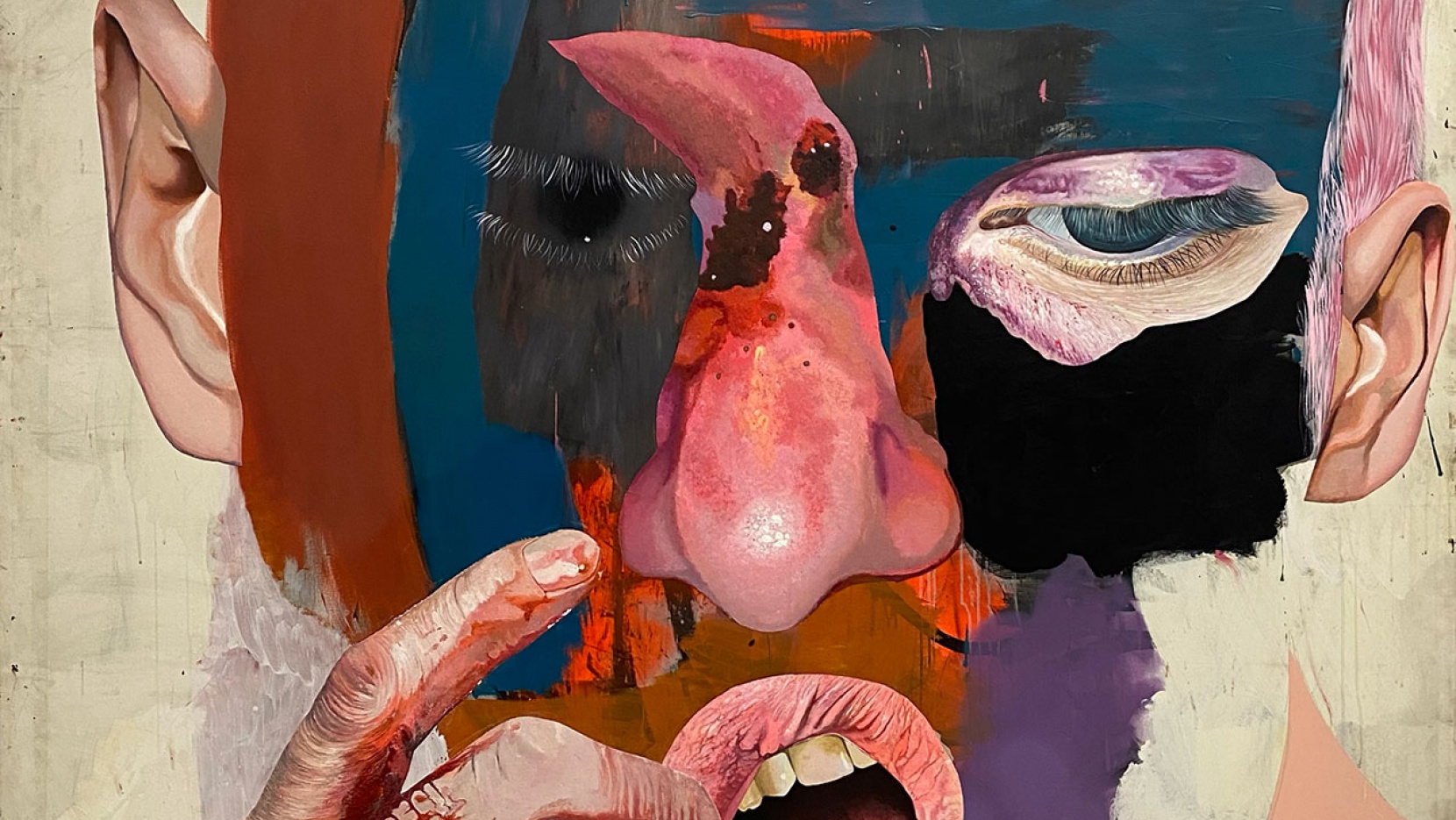Moving beyond traditional mediums, we were particularly impressed by the work of Yiannis Stempilis and Olga Migliaressi-Phoca. Drawing on his background as a jewellery designer, Stempilis creates collage-like artworks from various metal sheets, including zinc, bronze, copper, and brass, which he carves, oxidizes, and sometimes burns. As even the slightest mistake can be catastrophic, each piece requires at least two months to complete. This is exemplified by his work “Three Metals and the Blue Caribbean Girl”, showcased at Αrt Zone 42‘s booth, where the figure of a woman is meticulously formed by stamping countless points onto the metal sheets.
At The Breeder’s space, the mirrored artworks of Olga Migliaressi-Phoca captivated visitors with their large-scale dimensions, ever-changing reflections, and caustic humour—playfully riffing on VOGUE magazine covers as part of her 12-piece installation “The Future is Vague / 2023”. Meticulously crafted through a labour-intensive process involving bleaching, scratching, and painting, these fictional covers critically examine consumer desire, surveillance, and the challenges of self-definition in isolation, revealing the profound impact of commercial influences on our perceptions. Complementing Migliaressi-Phoca’s work were sculptural pieces by Panos Profitis, this year’s recipient of the Art Athina’s Emerging Artist Award.
Additional artists working with unconventional materials who struck a chord include Maria Efstathiou, whose porcelain series of paper-thin panels incredibly resemble creased or folded pieces of paper (Eleftheria Tseliou Gallery),and Christina Mitrentse, who used vintage books to create her “Fungi Classification” tableau and fungi-shaped stools (CITRONNE Gallery).
We also singled out artist duo Kalos&Klio, whose “On the Tapis” series of handwoven rugs and textiles (Kalfayan Galleries) intertwines global socio-political themes, ancient archetypes, and modern symbols to explore issues of oppression and freedom, and Brazilian artist Vik Muniz’s kaleidoscopic collage “Women on the Bank of the Seine, after Courbet, after Picasso” (XIPPAS). A homage to Picasso’s famous painting, and part of his “Surfaces” series, Muniz’s work was composed of multiple layers of photographic images of painted surfaces, prompting viewers to question their relationship with art in an era dominated by digital mediation.
